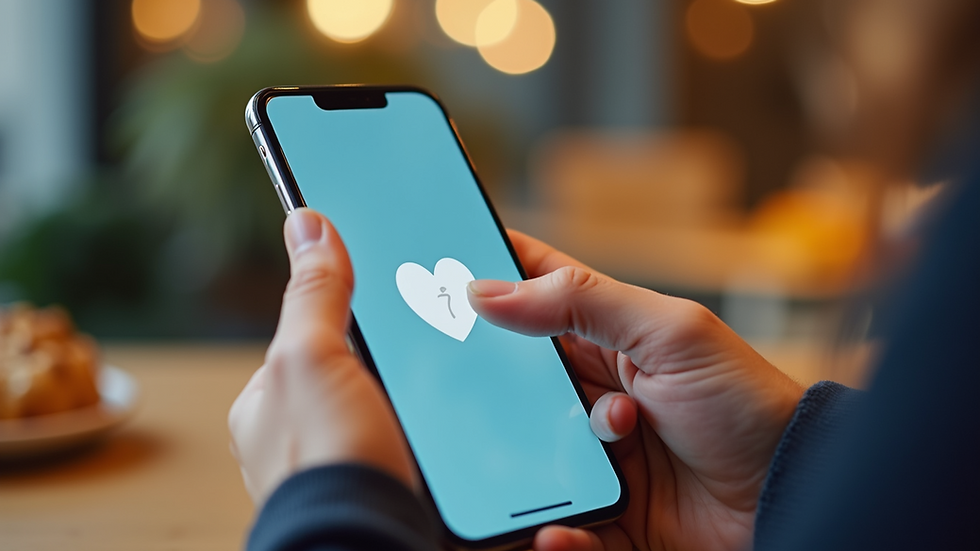Boost Customer Loyalty with Effective Rewards Programs
- Anthony Berot
- Oct 12
- 3 min read
Building strong relationships with customers is essential for any business aiming to thrive in today’s competitive market. One of the most effective ways to achieve this is through well-designed customer loyalty strategies. These strategies not only encourage repeat business but also foster brand advocacy and long-term engagement. In this article, we will explore practical ways to boost customer loyalty, focusing on actionable tips and insights that can be implemented right away.
Understanding Customer Loyalty Strategies
Customer loyalty strategies are plans and actions businesses use to encourage customers to keep coming back. These strategies go beyond just offering discounts; they create meaningful experiences that make customers feel valued and appreciated.
Why Are Customer Loyalty Strategies Important?
Increase Repeat Purchases: Loyal customers tend to buy more frequently.
Enhance Customer Lifetime Value: They spend more over time.
Generate Word-of-Mouth Marketing: Happy customers recommend your brand.
Reduce Marketing Costs: Retaining customers is cheaper than acquiring new ones.
Key Elements of Successful Customer Loyalty Strategies
Personalization: Tailor offers and communication based on customer preferences.
Consistency: Deliver a reliable and positive experience every time.
Engagement: Keep customers involved through interactive content or events.
Recognition: Acknowledge loyal customers with rewards or special treatment.
By focusing on these elements, businesses can create a strong foundation for customer loyalty.

Effective Customer Loyalty Strategies to Implement Today
Implementing the right strategies can transform casual buyers into devoted customers. Here are some proven approaches:
1. Create a Tiered Rewards System
A tiered system motivates customers to reach higher levels by offering increasing benefits. For example:
Bronze: Basic perks like birthday discounts.
Silver: Early access to sales and exclusive products.
Gold: Free shipping and personalized offers.
This structure encourages customers to spend more to unlock better rewards.
2. Use a loyalty rewards program to Incentivize Purchases
A well-designed loyalty rewards program can track customer purchases and reward points that can be redeemed for discounts or gifts. This not only encourages repeat business but also provides valuable data on customer behavior.
3. Offer Surprise and Delight Moments
Unexpected rewards or personalized thank-you notes can create emotional connections. For instance, sending a free sample or a handwritten note after a purchase can make customers feel special.
4. Leverage Technology for Seamless Experience
Mobile apps, digital wallets, and online portals make it easy for customers to track their rewards and engage with your brand. Ensure your loyalty program is accessible and user-friendly.
5. Encourage Social Sharing and Referrals
Incentivize customers to share their experiences on social media or refer friends by offering bonus points or exclusive discounts. This expands your reach organically.

What is the Most Popular Loyalty Program?
Among various loyalty programs, points-based systems remain the most popular. Customers earn points for every purchase, which can be redeemed for rewards. This simplicity and transparency make it easy for customers to understand and participate.
Examples of Popular Loyalty Programs
Starbucks Rewards: Customers earn stars for every purchase, redeemable for free drinks and food.
Amazon Prime: Offers free shipping, exclusive deals, and streaming services for a subscription fee.
Sephora Beauty Insider: A tiered program with points, birthday gifts, and exclusive events.
These programs succeed because they combine ease of use with valuable rewards and personalized experiences.
Why Points-Based Programs Work
Clear Value Proposition: Customers know exactly what they get.
Flexibility: Points can be redeemed in various ways.
Engagement: Encourages frequent interaction with the brand.

Measuring the Success of Your Customer Loyalty Strategies
To ensure your efforts are effective, it’s important to track key performance indicators (KPIs). Here are some metrics to monitor:
Customer Retention Rate: Percentage of customers who return.
Repeat Purchase Rate: How often customers make additional purchases.
Average Order Value: The average amount spent per transaction.
Customer Lifetime Value: Total revenue generated by a customer over time.
Net Promoter Score (NPS): Measures customer satisfaction and likelihood to recommend.
Regularly analyzing these metrics helps you refine your strategies and maximize impact.
Tips for Maintaining Long-Term Customer Loyalty
Building loyalty is not a one-time effort but an ongoing process. Here are some tips to keep customers engaged over the long term:
Stay Relevant: Update your rewards and offers based on customer feedback and trends.
Communicate Regularly: Use email newsletters, social media, and SMS to keep customers informed.
Provide Excellent Customer Service: Quick and helpful support builds trust.
Celebrate Milestones: Recognize anniversaries, birthdays, and other special occasions.
Solicit Feedback: Show customers that their opinions matter and use their input to improve.
By consistently nurturing your customer relationships, you create a loyal community that supports your brand.
Implementing effective customer loyalty strategies can significantly boost your business’s growth and reputation. By focusing on personalization, engagement, and rewarding experiences, you can turn one-time buyers into lifelong advocates. Start today by exploring options like a loyalty rewards program and watch your customer loyalty soar.


Comments